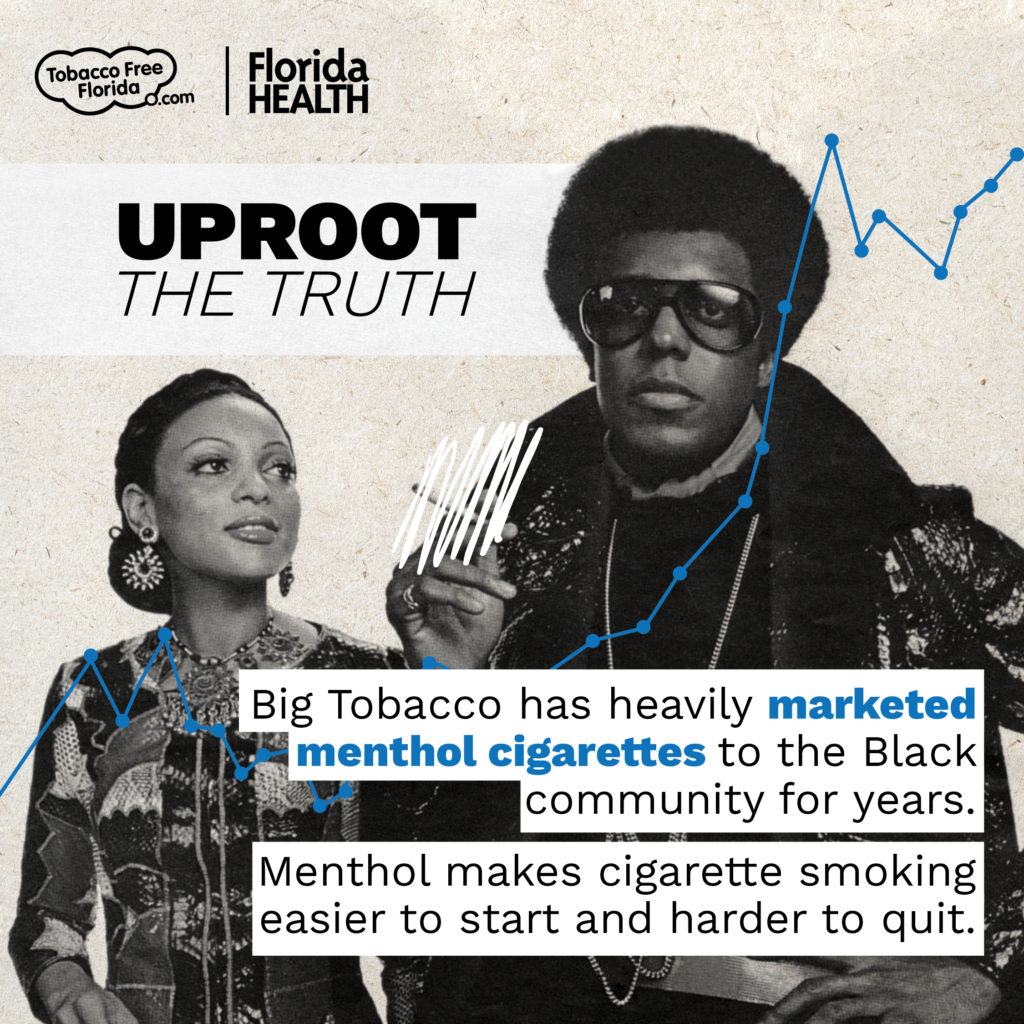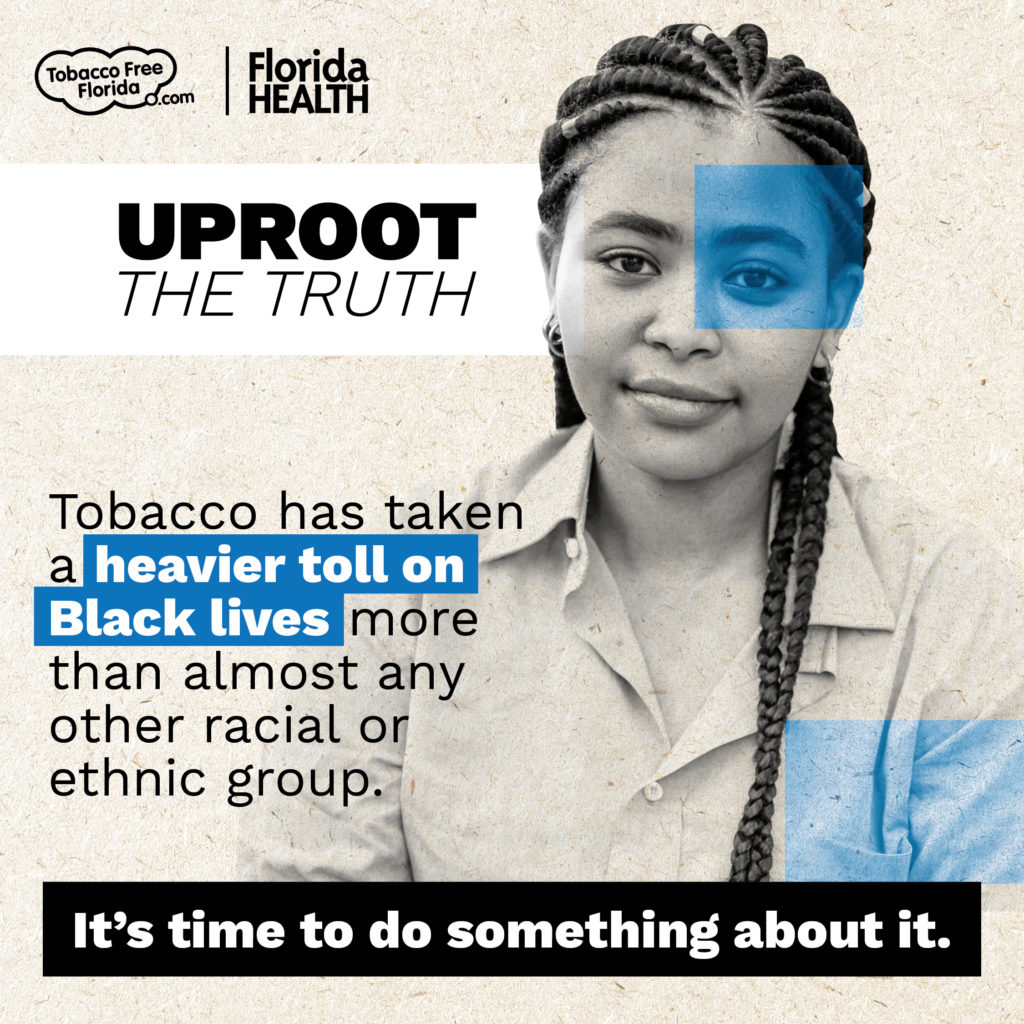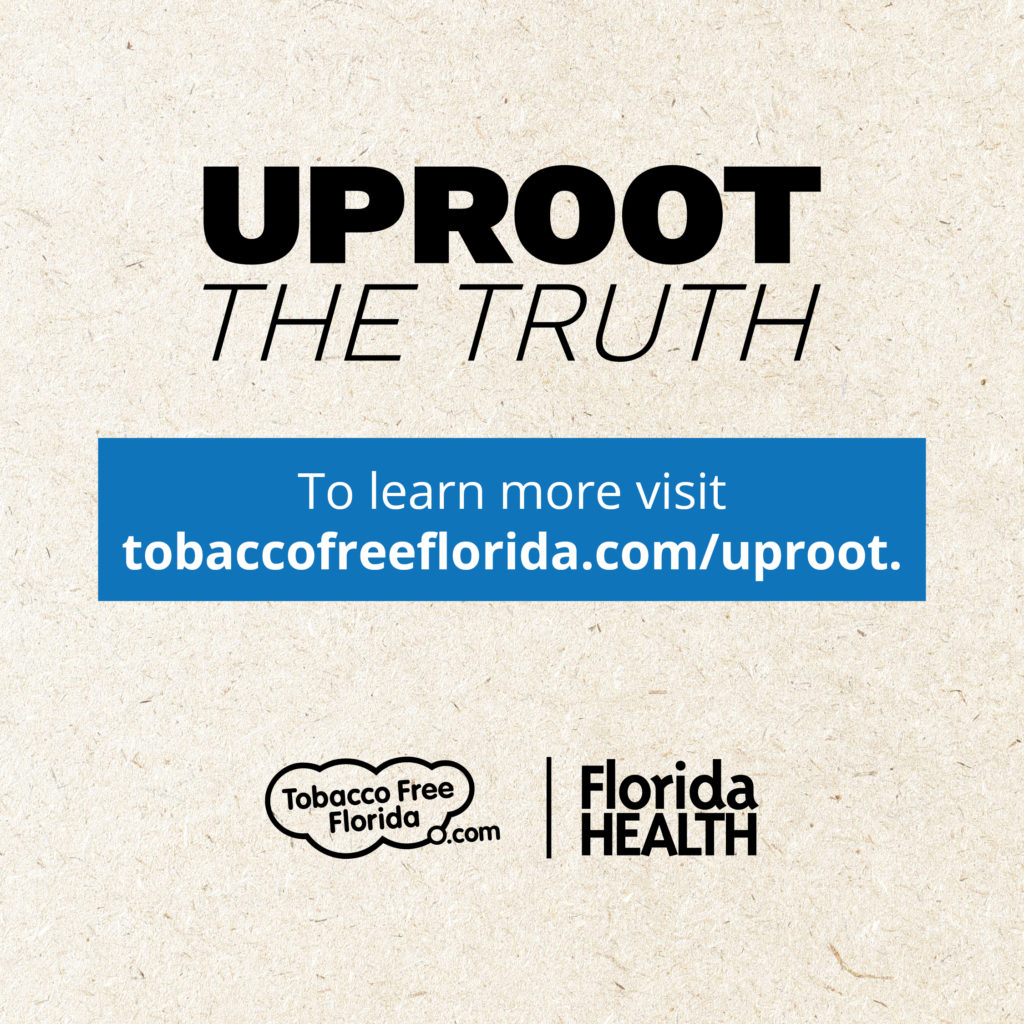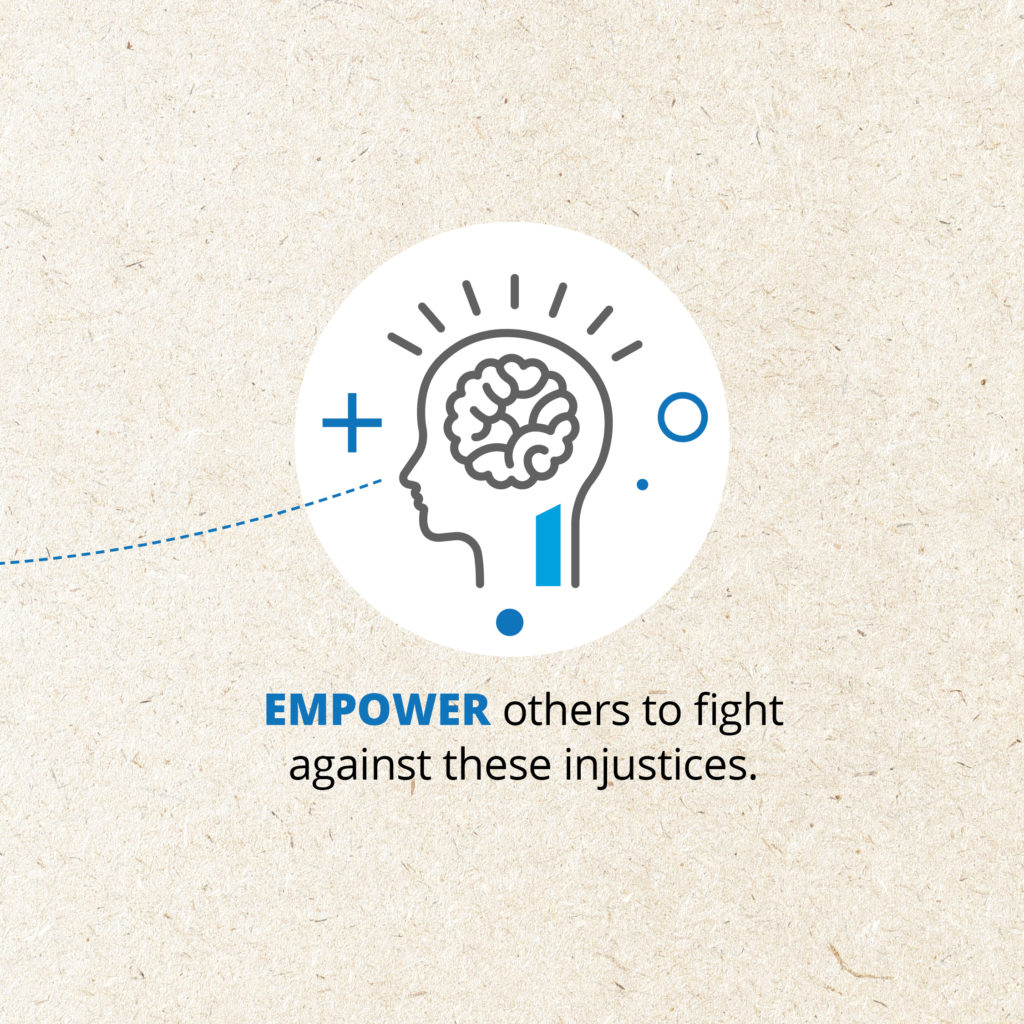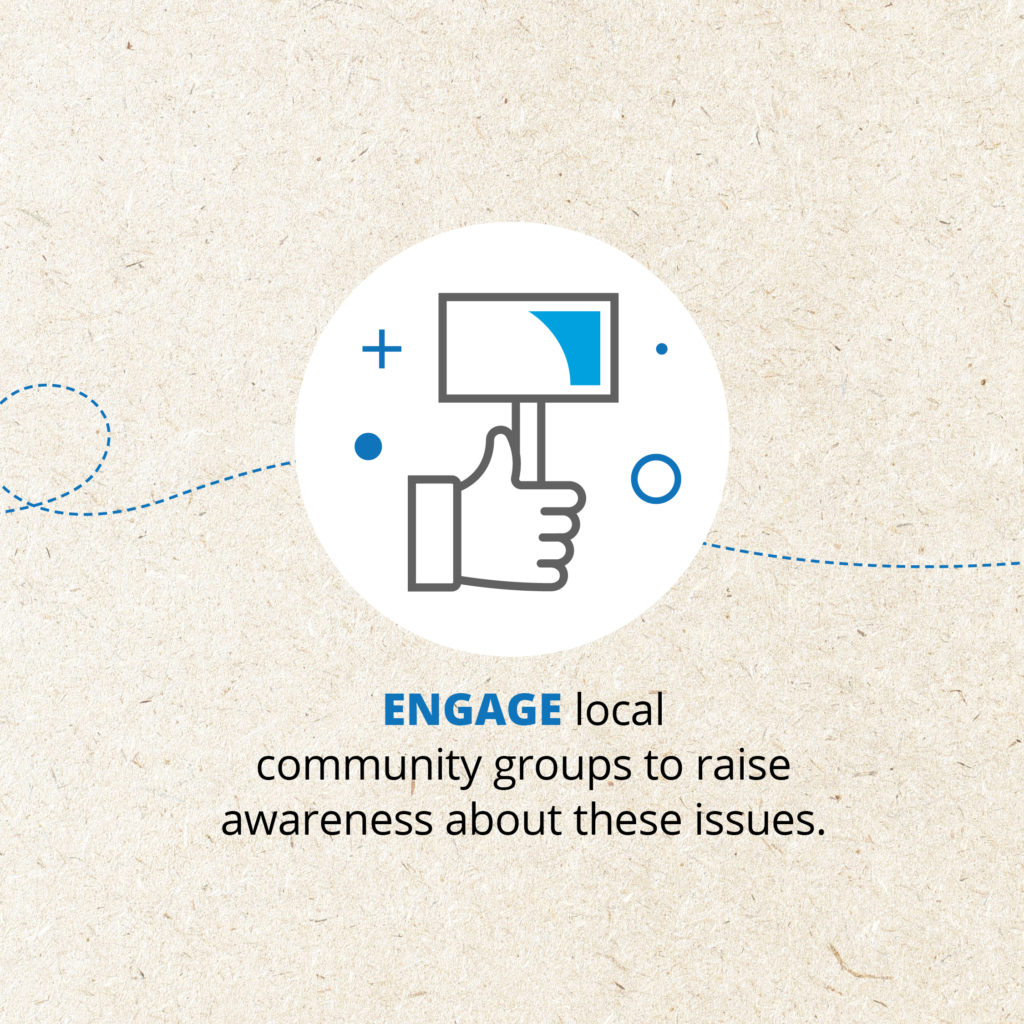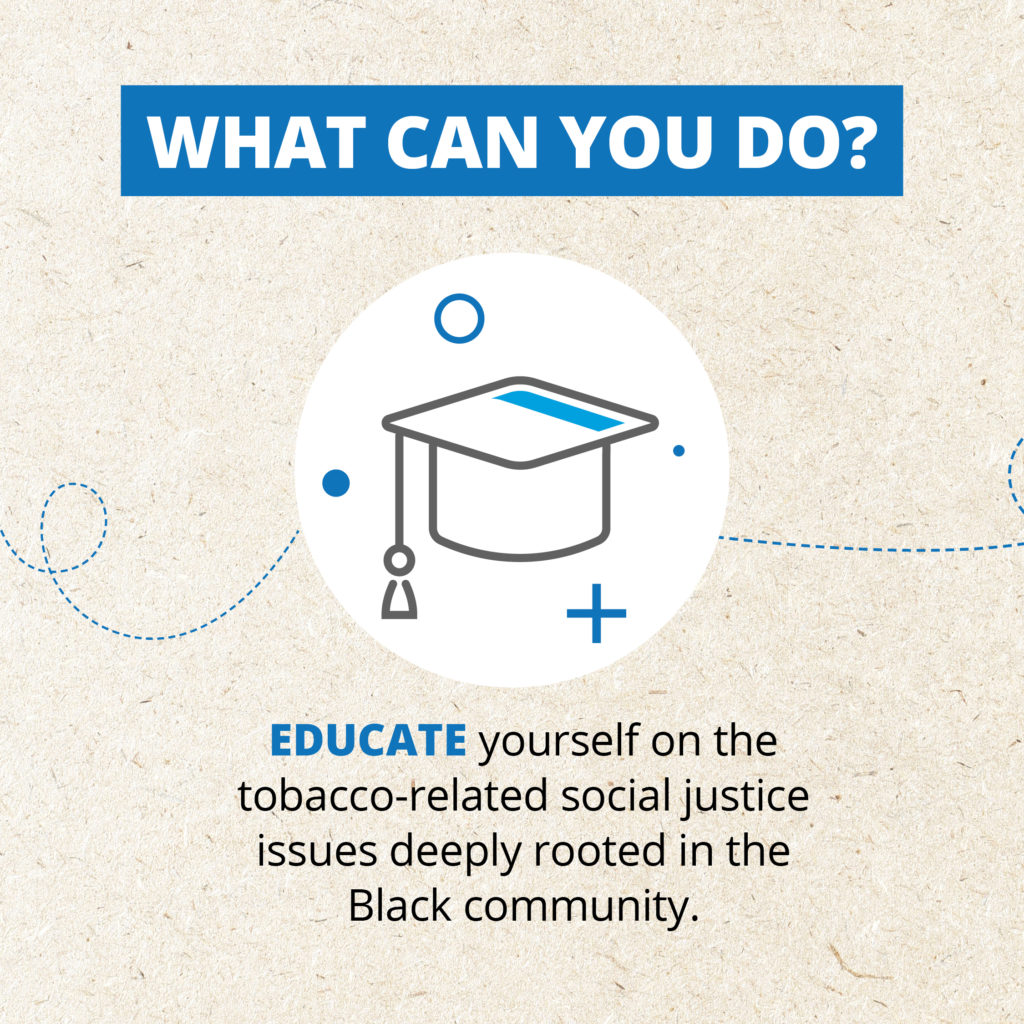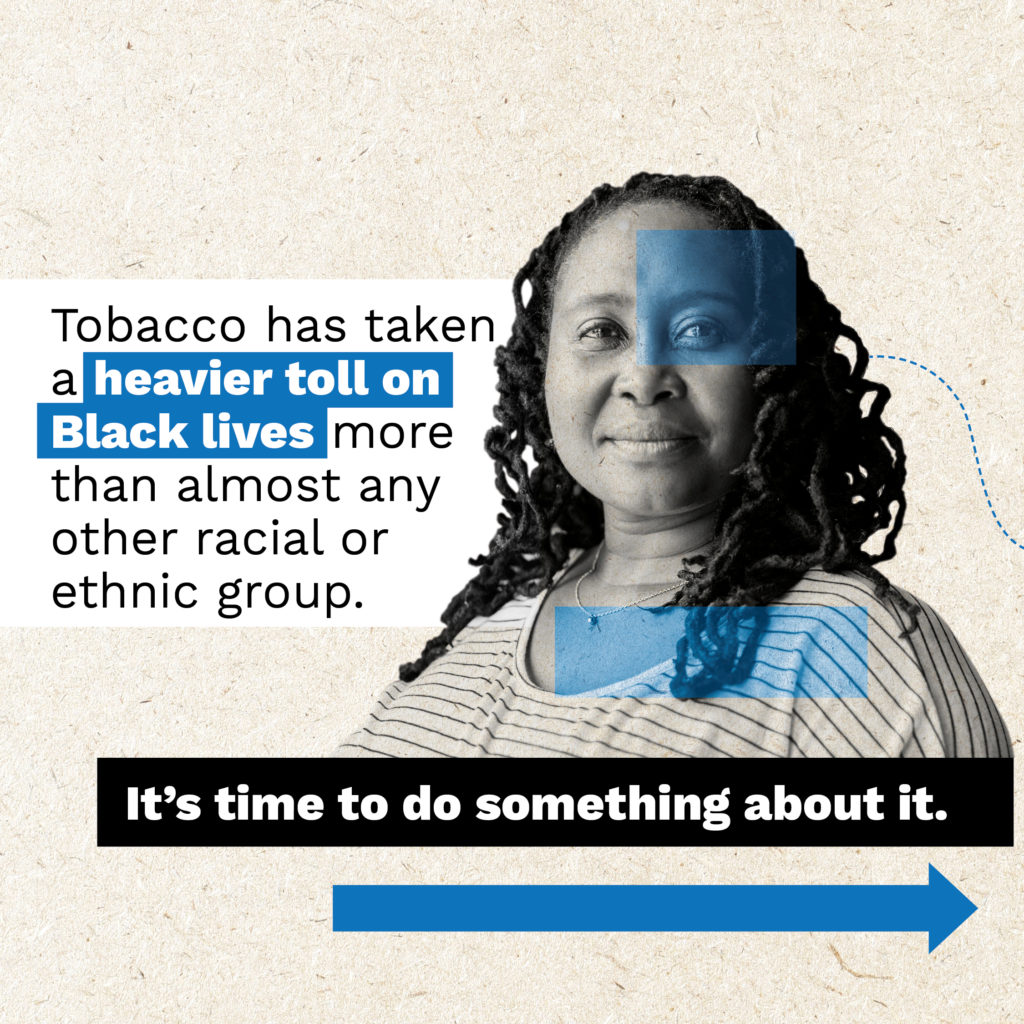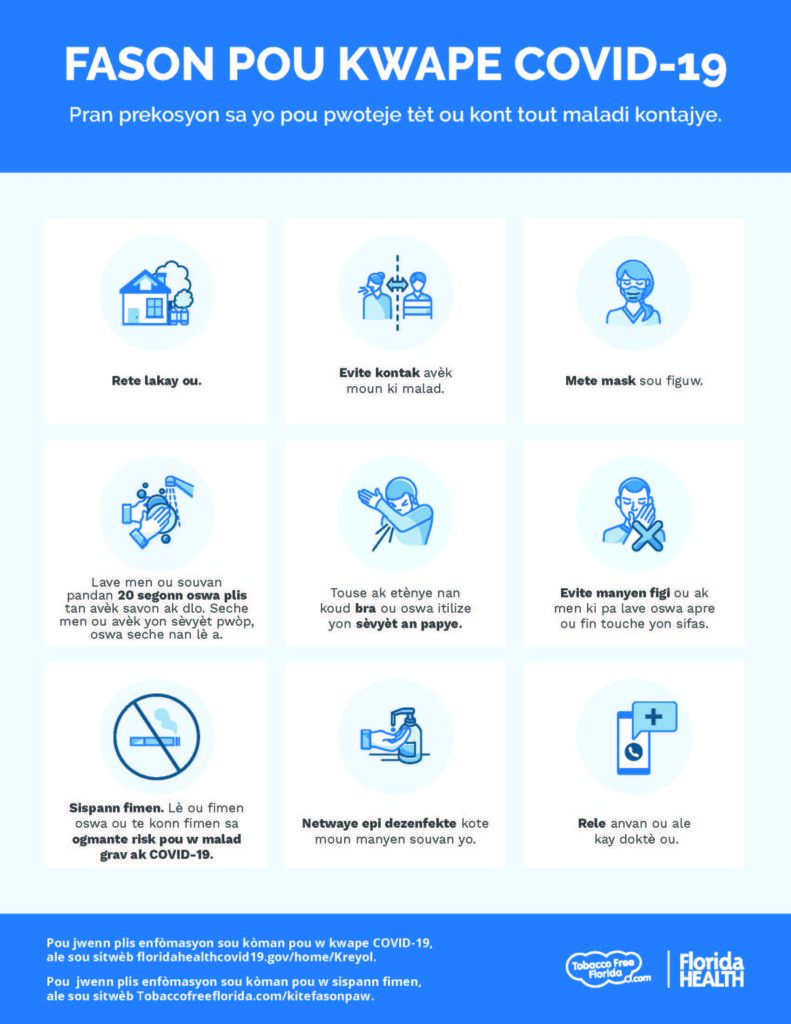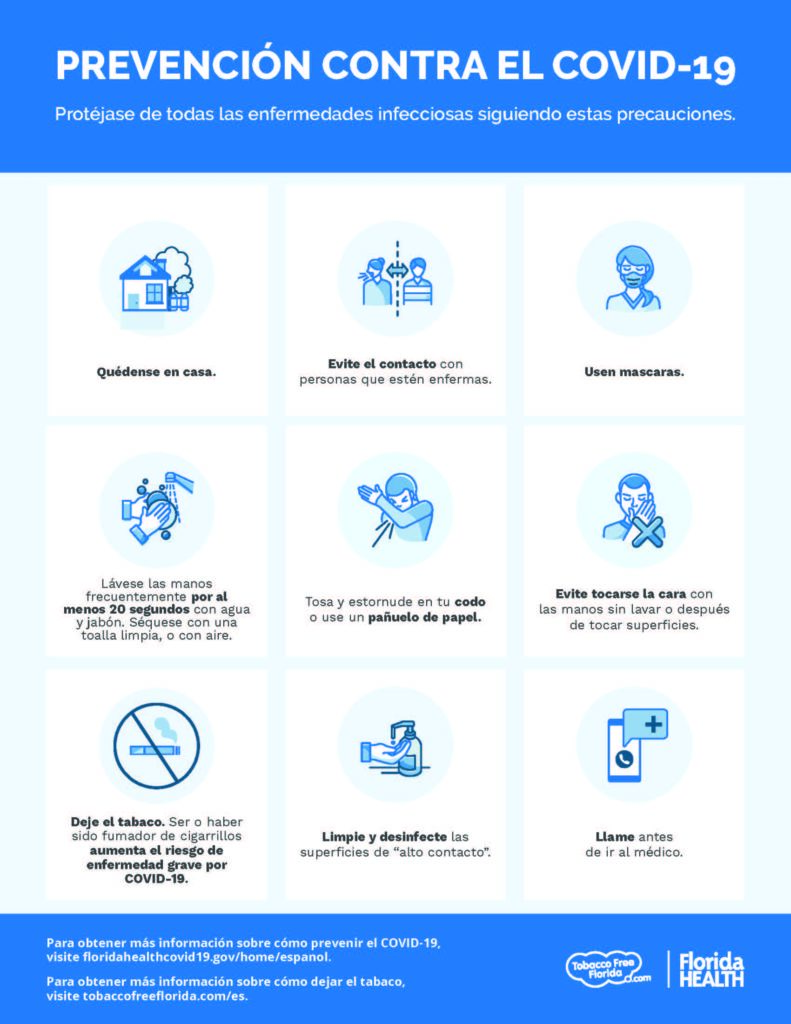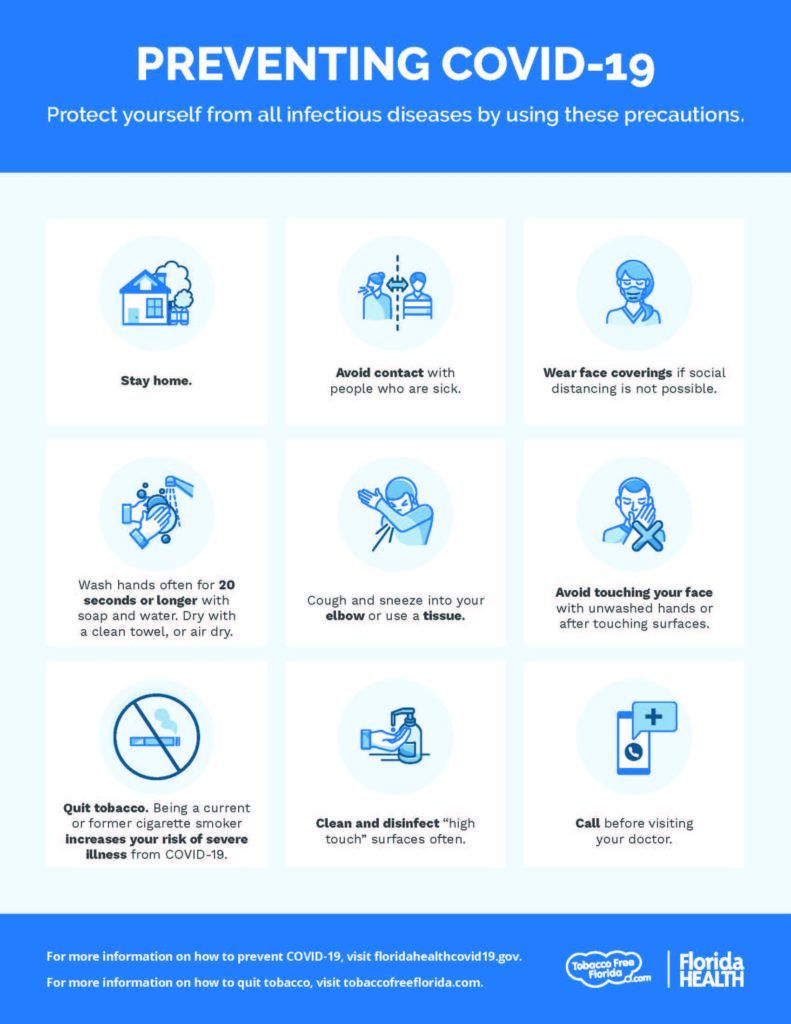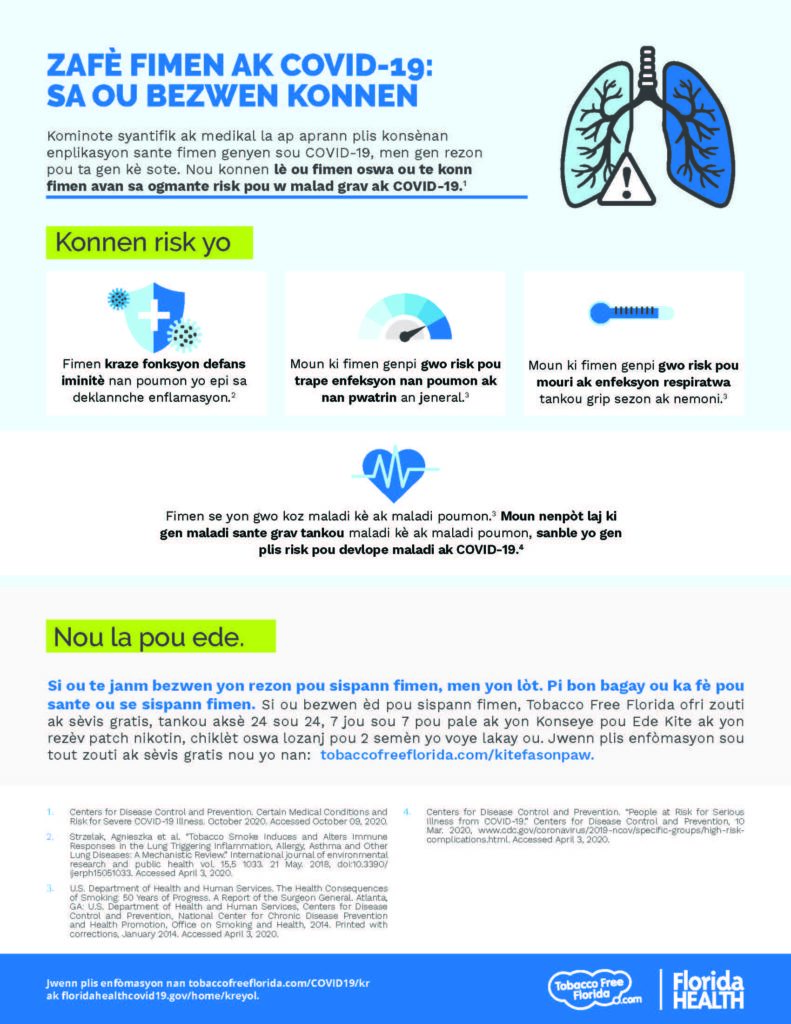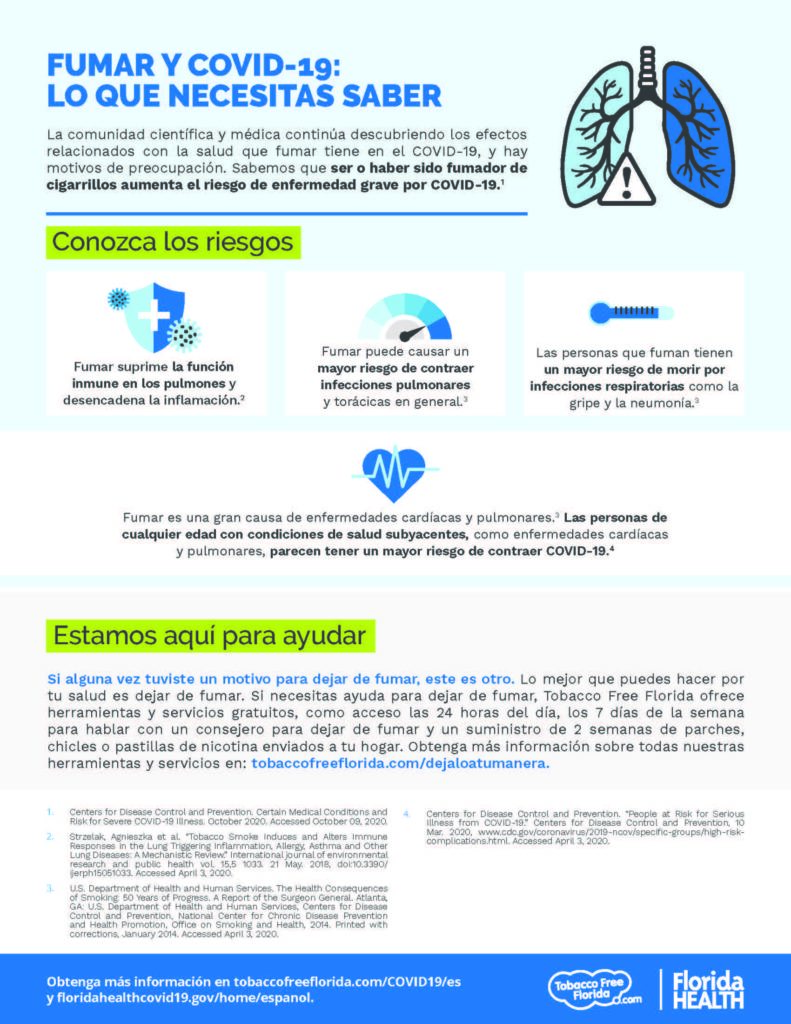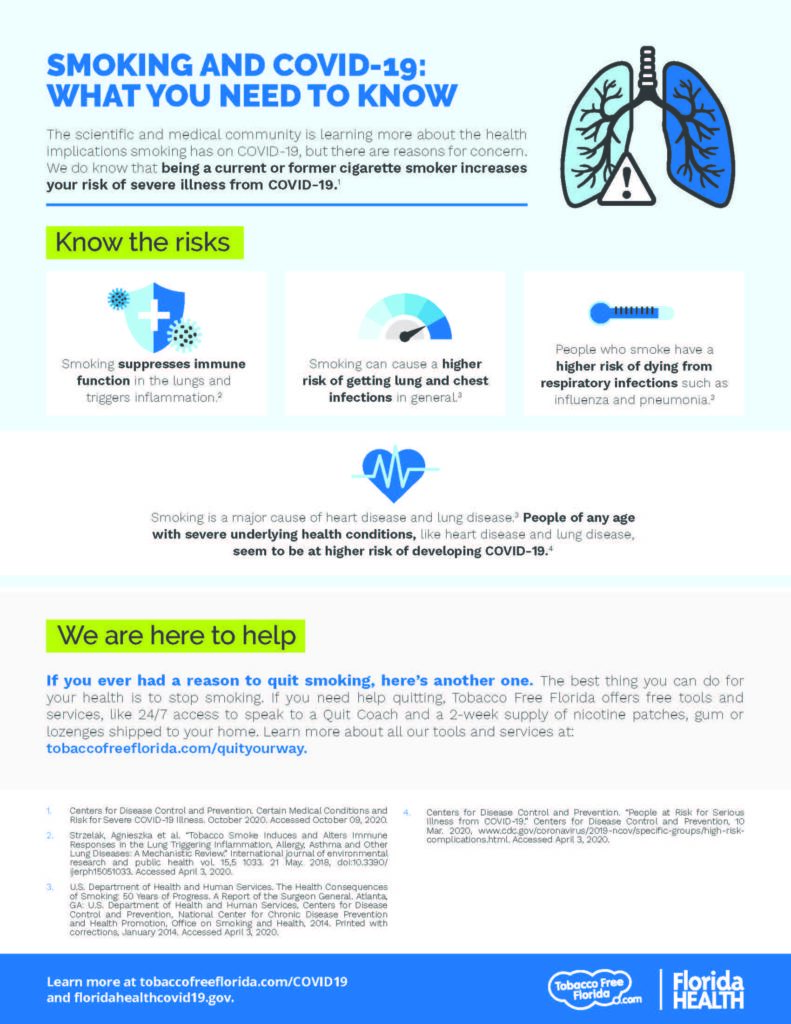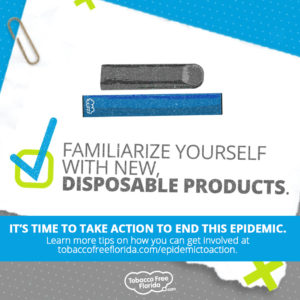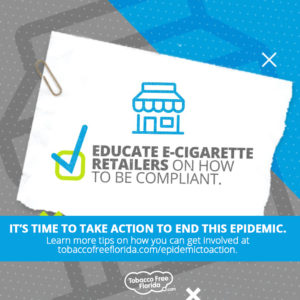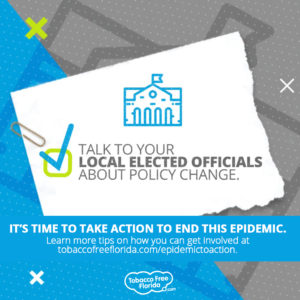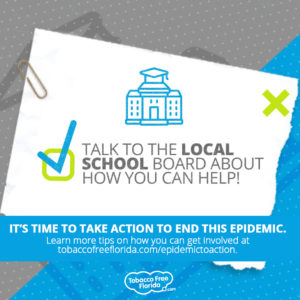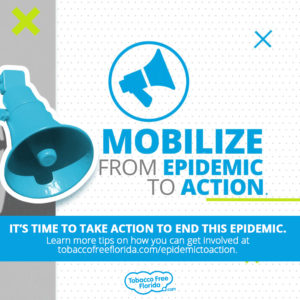School Nurses: Champions Against Nicotine
The New Nicotine Generation has sparked an important conversation about the new nicotine and tobacco devices appearing in our schools and in the lives of young people across Florida.
One important group of adults uniquely positioned to understand these products and support prevention efforts are the more than 2,600 school nurses dedicated to keeping kids across Florida healthy. With about nine out of 10 adult smokers having started by age 18, a school nurse’s care and support could make the difference in saving the lives of people across Florida for years to come.
As part of the Champions Against Nicotine initiative, Tobacco Free Florida is providing updated information on the nicotine and tobacco products that Florida’s kids, teens, and young adults are encountering.
The good news is just 1% of Florida’s youth today are smoking conventional cigarettes. However, tobacco companies continue to reinvent and repackage its addictive products.
Just a few short years ago, the main concern was e-cigarettes – one of these reinvented products. While e-cigarette use remains concerning, Florida’s youth use rate is less than half what it was in the height of the e-epidemic. Despite this decline, new nicotine products that appeal to youth continue to hit the market, making it more important than ever for school nurses to be able to recognize the latest devices that may be entering schools across our state.
Learning about what new products are emerging can help school nurses inform their conversations and better understand what today’s youth are encountering.
Oral nicotine products are marketed as an alternative to smokeless tobacco. They contain synthetic nicotine and are placed between the gums and the lip. Nicotine pouches entered the U.S. market in 2016, and we are still learning about the short- and long-term health effects of using them.
However, a great deal is already known about nicotine’s harmful effects on young minds and bodies. School nurses should remember that:
- The brain develops until about age 25 and is more vulnerable to nicotine’s effects, including reduced impulse control, focus and cognition deficits, and mood disorders.
- Exposure to nicotine in teen years can increase risk for future addiction to drugs and tobacco products.

- “Smart” Vapes have digital display screens and can include games and reward systems for vaping, such as points and rankings. These features may make the products even more appealing to youth.

- Disposable e-cigarettes have also flooded the market. Unlike the refillable e-cigarette devices popular over the past several years, these single-use, disposable systems create significant waste in addition to being harmful and addictive. From January 2020 through December 2022, disposable e-cigarette sales rose 27.1%.

- Flavored e-cigarettes have surged in popularity among underage users, replacing the brands that were popular when e-cigarettes first debuted and peaked in use. Flavors are a major driver of youth e-cigarette use, and many underage people who use e-cigarettes only use these candy or fruity flavored varieties. The most recent U.S. Food and Drug Administration flavor policy applies only to cartridge- and pod-based e-cigarettes, leaving current flavored e-cigarette products outside its regulation.

- “Heat–not–burn” devices are another new category receiving heavy investment and marketing from the tobacco industry. Heat–not–burn devices are electronic heating devices that heat up tobacco sticks, plugs, capsules, or liquids to absorb flavor and nicotine from tobacco. “Heat–not–burn” devices are popular in certain overseas markets and tobacco companies continue to work to begin their introduction in Florida and throughout the U.S.

HOW SCHOOL NURSES CAN SUPPORT NICOTINE PREVENTION
School nurses have several options to help students stay nicotine free.
- While on campus or at school activities, be ready to recognize these new devices and educate students about the harmful effects of tobacco and nicotine products. Know that today’s kids and teens get a lot of misinformation, especially across online platforms, about these products.
- As a trusted health professional, help educate faculty, staff, and other on-campus personnel about the latest trends and what to look for. This can include sharing the new fact sheet, handout for educators, and the “Know The Products” card.
- Identify opportunities to help parents understand The New Nicotine Generation, what to look for, and why these new tobacco and nicotine devices are a cause of concern. The “What Parents Need to Know” information is a quick and easy way to provide information from a trusted source.
- If your school or one in your area has a chapter of Students Working Against Tobacco, consider connecting with these active students to see how they’re involved and learn what they’re seeing among their friends and peers.
Additionally, another important part of health conversations is living and modeling the behavior we are helping the next generation see so they make strong choices in their lives as well. If you are ready to quit tobacco and are looking for support, visit TobaccoFreeFlorida.com or call 1-877-U-CAN-NOW (877-822-6669).
MATERIALS FOR SCHOOL NURSES


